Top 18 Healthy High Calorie Foods For Weight Gain
May 31, 2021 | by Sravani Pathakamuri | Posted in weight gain
Here we are going to learn about top 18 healthy high calorie foods for weight gain. A calorie is a unit of energy. In nutrition, calories refer to the energy people get from the food and drink they consume and the energy they use in physical activity. Calories are listed in the nutritional information on all food packaging. Many weight loss programs center around reducing the intake of calories. In general, the daily value (%DV) for calories is 2000 calories per day, but people active with strength training or other exercises may want to consume more.
Calories are found in all foods and are necessary to maintain the body’s vital functions or basal metabolic rate (BMR). The amount of calories a person needs depends on factors like their age, gender and lean muscle mass.
The number of calories in a food is a measure of how much potential energy that food possesses. A gram of carbohydrates has 4 calories, a gram of protein has 4 calories and a gram of fat has 9 calories. Foods are a compilation of these three building blocks.
How Many Calories Should You Eat on Average?
An average woman needs to eat about 2000 calories per day to maintain, and 1500 calories to lose one pound of weight per week. An average man needs 2500 calories to maintain, and 2000 to lose one pound of weight per week. However, this depends on numerous factors .
How The Calories Are Calculated?
Since a Calorie raises the temperature of 1 kilogram (1 liter) of water by 1 degree, the calorie count is found by calculating the change in temperature of the water multiplied by the volume of water. A bomb calorimeter is used to measure the heat released by a food sample that is burne .
Fast Facts On Calories
- Calories are essential for human health. The key is consuming the right amount.
- Everyone requires different amounts of energy each day, depending on age, sex, size and activity level.
- People in the United States consume more than 11 percent of their daily calories from fast food.
- Foods high in energy but low in nutritional value provide empty calories.
The recommended intake of calories per day depends on several factors, including:
- Overall general health
- Physical activity demands
- Sex
- Weight
- Height
- Body shape
High Calorie Foods:
1. Nuts and Nut Butters
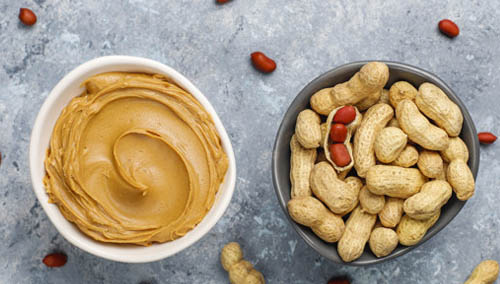
- Nuts are a great source of protein, healthy fats and calories, making them an excellent choice if you’re looking to gain weight. Nut butters, which are high in calories, Add nut butter to snacks, sides or smoothies for a boost of protein and calories.
For Example: Cashew nuts contain following amounts per 100g. Proteins- 21.2, Fat- 46.9, Carbohydrates- 22.3, Energy- 596, Calcium-50, Iron- 5.81.
2. Avocado
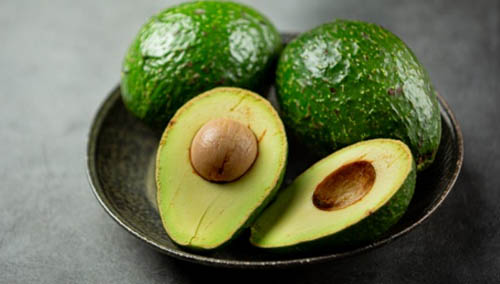
- Avocados are renowned for their creamy texture and delicious, mild flavor.
- They also boast an impressive nutrient profile and help promote healthy weight gain by supplying plenty of heart-healthy fats and fiber.
- One avocado boasts about 322 calories, 13.5 grams of fiber and almost 30 grams of total fat .
- Avocados are also rich in a range of micronutrients, including vitamin C, folate, pantothenic acid and potassium.
- Try adding half an avocado to your morning smoothie, spreading one on a slice of sprouted bread or cubing it to sprinkle on salads or omelets.
- Avocados are rich in calories, fiber, vitamins and minerals. They’re also an easy way to boost your intake of healthy fats.
3. Quinoa

- Quinoa is a healthy pseudo-grain loaded with protein, fiber and many other nutrients your body needs.
- It’s also high in calories, as 1 cup (185 grams) of cooked quinoa holds about 222 calories, 8 grams of protein and 5 grams of fiber.
- Quinoa is one of the few complete plant-based sources of protein, meaning that it provides all nine essential amino acids. Your body is unable to produce these on its own and must obtain them from food.
- Quinoa also supplies a good amount of manganese, magnesium, phosphorus, copper and folate.
- It functions as a satisfying side dish and can be added to soups, stews and salads for an easy way to squeeze in more calories.
- Quinoa is a complete protein, providing all the amino acids your body needs. It also contains a good amount of calories, fiber and micronutrients.
4. Potatoes and Starches

- Potatoes and other starchy foods are a very easy and cost-effective way to add in extra calories. Try to choose one of these healthy sources of starchy carbs:
- Quinoa, Oats, Corn, Buckwheat, Potatoes and sweet potatoes, Squash, Root vegetables, Beans and legumes.
- Not only do potatoes and other starches add carbs and calories to help you gain weight, they also increase your muscle glycogen stores.
- Glycogen is the predominant fuel source for most sports and activities .
- Many of these carb sources also provide important nutrients and fiber, as well as resistant starch, which can help nourish your gut bacteria .
5. Olive Oil

- Olive oil is rich in healthy monounsaturated fats, olive oil is well known for its health-promoting properties.
- Monounsaturated fats have been shown to increase levels of “good” HDL cholesterol, reduce blood triglycerides and help improve blood sugar levels in people with type 2 diabetes.
- Olive oil is also high in antioxidants, which are beneficial compounds that prevent oxidative damage to your cells and reduce your risk of chronic disease.
- Moreover, with 119 calories and 13.5 grams of fat in a single tablespoon (14 grams), olive oil can also be a healthy way to add extra calories to a meal.
- Drizzle it over cooked veggies, mix it into a salad dressing or add it to marinades to bring a burst of flavor and calories to your meals.
- Olive oil is high in calories, monounsaturated fats and antioxidants. It can be added to cooked veggie dishes, salad dressings and marinades.
6. Dried Fruit

- Dried fruit is a great way to gain extra calories, vitamins, minerals and antioxidants.
- Exact nutritional content can vary based on the type of fruit, ranging from prunes which have 209 calories in a half cup (87 grams) to raisins — which have 247 in a half cup (83 grams).
- Studies note that dried fruit is rich in fiber and antioxidants and supplies micronutrients that are 3–5 times more concentrated than in fresh fruit.
- Because dried fruit is also high in natural sugars, it’s best to combine it with a nutritious protein source to minimize the potential effects on your blood sugar.
- Mix your choice of dried fruit with coconut yogurt or oatmeal for a high-calorie breakfast, or try it with nuts and seeds as a tasty trail mix. You can also add it to protein shakes.
- Dried fruit is high in calories, fiber and micronutrients. Consider combining it with a quality protein to cut the impact of its high sugar content.
7. Legumes

- Legumes, such as lentils, beans and chickpeas, all pack a good amount of protein, fiber and calories.
- Black beans, for example, pack 227 calories and 15 grams each of protein and fiber in 1 cooked cup (172 grams).
- Legumes are also generally high in important vitamins and minerals, including folate, magnesium, iron, zinc and potassium.
- Try adding beans to vegan meatballs or burgers, as well as salads, soups, casseroles, dips and spreads.
- Legumes — which range from lentils to black beans are high in calories, protein and fiber, as well as many important vitamins and minerals.
8. Sweet Potatoes

- Sweet potatoes are a popular starchy vegetable favored for their vibrant color, delicious flavor and stellar nutrient profile.
- They are high in calories and fiber, plus a number of essential vitamins, minerals and antioxidants.
- One cup (200 grams) of cooked sweet potato contains 180 calories and 6.5 grams of fiber.
- A single serving can also knock out your entire daily needs for vitamin A and give you ample vitamin C, manganese, potassium and vitamin B6.
- Try this orange root vegetable roasted, baked, mashed or grilled.
- Sweet potatoes are high in calories, fiber, vitamins and minerals and can be prepared in many different ways.
9. Smoothies
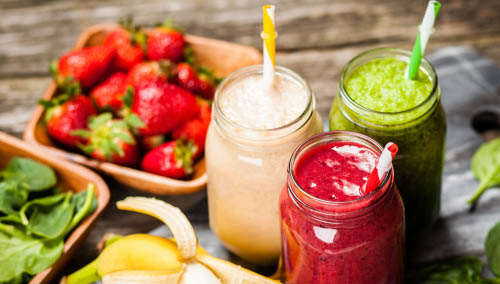
- Nut butter, dried or fresh fruits, avocados, almond milk, coconut oil and seeds are all excellent add-ins for a nutritious, calorie-dense smoothie.
- Drink your smoothie between or after meals instead of as a meal replacement to maximize your calorie consumption and support weight gain.
- Vegan smoothies are an easy way to increase your calorie and nutrient intake. For best results, blend a few high-calorie ingredients with a good source of protein.
10. Rice
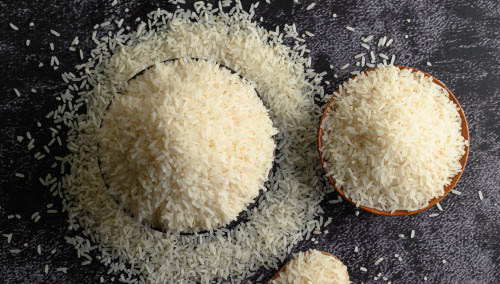
- Rice is a cost-effective, versatile and calorie-dense carbohydrate that can promote gradual weight gain.
- It also provides a bit of extra protein and fiber, in addition to several important vitamins and minerals.
- One cup (195 grams) of cooked brown rice gives 216 calories alongside 5 grams of protein and 3.5 grams of fiber. It’s also a good source of manganese, selenium, magnesium, phosphorus and niacin. You can combine rice with a serving of protein for an easy meal on the go.
- Rice can also be cooked ahead of time and refrigerated for use for several days. While opinions differ on how long you can safely store rice, recommendations range from a few days to a week
- Rice, which is high in calories, also offers protein, fiber, vitamins and minerals. It can be combined with a good source of protein and enjoyed as part of a nutritious snack or meal.
11. Coconut Oil

- Coconut oil has garnered significant attention in the health world thanks to its beneficial effects on everything from cholesterol levels to brain function.
- As it’s rich in calories, it can also help you gain weight.
- In fact, 1-tablespoon (15-ml) serving of coconut oil packs 116 calories and 13.5 grams of fat.
- Coconut oil is easy to use and can be swapped for most other fats and oils. It can also be mixed into smoothies or added to sauces and dressings.
- High in fat and calories, coconut oil is associated with numerous health benefits. It’s also versatile and can replace most other oils or fats.
12. Whole-Grain Bread

- Whole-grain breads are another good carb source to help you gain weight.
- You can make some very simple, high-calorie and well-balanced meals by combining bread with protein sources such as eggs, meat and cheese.
- When purchasing bread, aim for natural whole-grain and seeded breads.
13. MilK
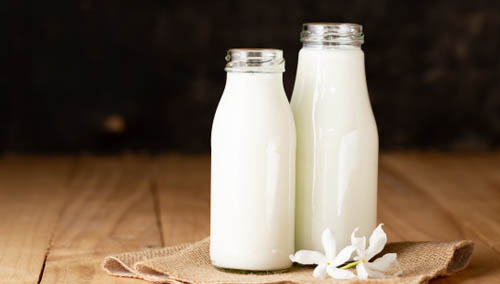
- Milk has been used as a weight gainer or muscle builder.
- It provides a good balance of proteins, carbs and fats and is a good source of calcium, as well as other vitamins and minerals.
- For those trying to add more muscle, milk is an excellent protein source that provides both casein and whey proteins. Research has even shown it can help you add muscle when combined with weight lifting.
- Additionally, studies have found that milk, or whey and casein combined, can lead to greater mass gain than other protein source.
- Try drinking around one or two glasses as a snack, with a meal, or before and after a workout if you are training.
14. Dark Chocolate
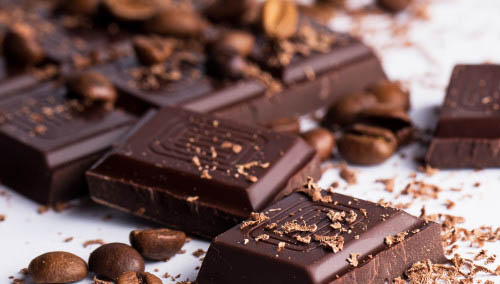
- High-quality dark chocolate provides a ton of antioxidants and health benefits.
- Most people recommend getting dark chocolate with a cocoa content of at least 70%.
- Like other high-fat foods, dark chocolate has a very high calorie density, meaning it’s very easy to get many calories from it.
- Each 100-gram (3.5-ounce) bar has around 600 calories and is packed with micronutrients and health-promoting compounds, including fiber, magnesium and antioxidants .
15. Cheese

- Cheese has been a staple food for centuries.
- Like dark chocolate, it’s high in calories and fats. If you eat it in larger quantities, it’s also a very good source of protein.
- Since cheese is incredibly tasty, you can add it into most dishes and easily add several hundred extra calories.
- Cheese is a very good source of protein and rich in healthy fats.
16. Whole Eggs
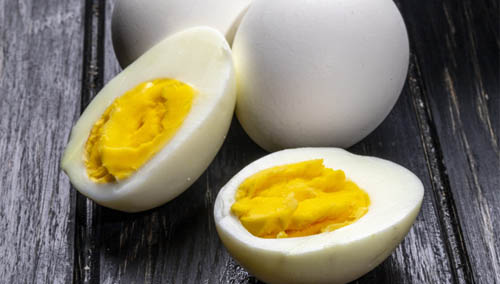
- Eggs are one of the healthiest muscle-building foods on the planet. They provide a great combination of high-quality proteins and healthy fats.
- It’s also very important to eat the whole egg. In fact, almost all of the beneficial nutrients in eggs are found in the yolk.
- As long as you don’t have an intolerance to eggs, there is no need to limit your egg consumption you can easily eat 2-3 eggs per day if you want.
- In fact, many athletes or bodybuilders will eat six or more daily.
17. Healthy Fats and Oils
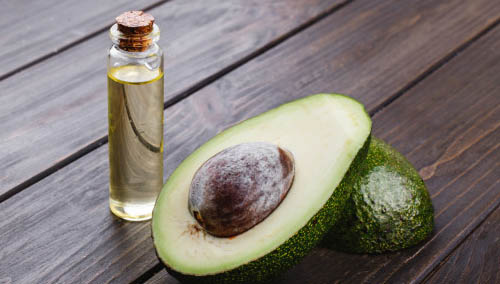
- Healthy fats and oils are some of the most calorie–dense foods on the planet.
- Simply adding a tablespoon (15 ml) of oil to sauces, salads and during cooking can quickly add 135 calories.
- Healthy oils include extra virgin olive oil, avocado oil and coconut oil.
18. Healthy Cereals
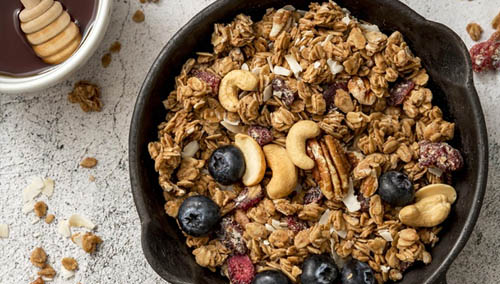
- Healthy cereals can be an excellent source of carbs, calories and nutrients. While you should avoid processed, high-sugar cereals, healthier forms like oatmeal can be a great carb source to add to your diet.
- Grain-based cereals and oats also contain beneficial nutrients like fiber and healthy antioxidants .
When purchasing cereals, focus on these healthy choices:
- Oats
- Granola
- Multigrains
- Bran
- Ezekiel
Note:
Plenty of high-calorie, nutrient-dense vegan foods can make gaining weight easy and fast. Incorporating these foods into your meals and snacks can boost your calorie consumption and promote weight gain. Be sure to combine these foods with other nutritious ingredients including fruits, veggies, proteins and whole grains for a healthy well-balanced diet.